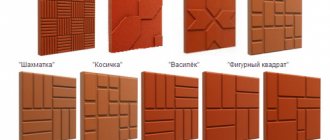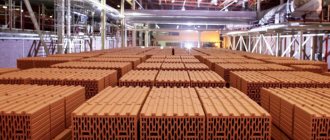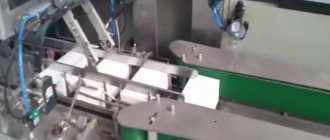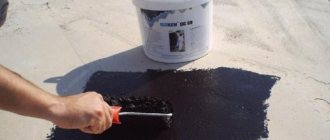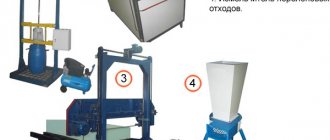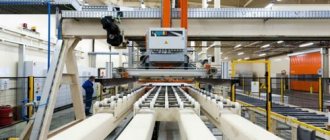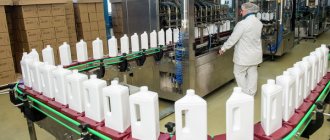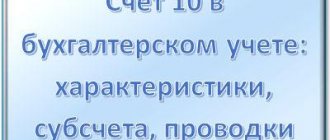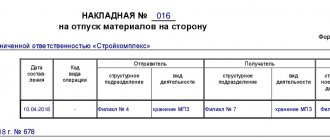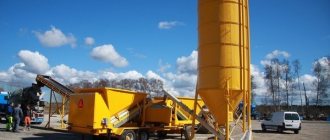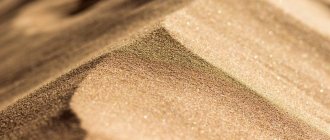What equipment to choose for the production of roofing felt
The most expensive part in organizing mini-production of roofing felt is the purchase of special equipment.
Its price depends on power, degree of automation and other factors.
To purchase a production line with a productivity of 10 rolls of roofing felt per hour, an entrepreneur will need to spend about 400 thousand rubles.
The raw material base for such a mini-production will be petroleum bitumen, talc, roofing cardboard, coarse dusting, sand, etc.
The minimum equipment for a reberoid production line costs 451,500 rubles.
Productivity: up to 150 rolls of glassine per day. The equipment is minimal.
| Name | Quantity | Price in rub. |
| Warp unwinding table (roof felt production line) | 1 | 18500 |
| Line for the production of roofing felt and glassine RP-350 | 1 | 349000 |
| Roofing felt product winding table R-02 | 1 | 84000 |
Total 451,500 rub.
This kit will also require the following: 1. Install all equipment 2. The length of the rolls is measured manually (by marking) 3. The completion time for this line is 30 - 40 calendar days 4.. Prepayment for this kit is 50,000 rubles. 5. The area required to arrange this set of equipment is from 80 m2 with a ceiling height of 2.5 m. 6. Operating personnel 2 people 7. Electrical power of all equipment - no more than 35 kW
Equipment for the production line of rib felt with a capacity of up to 350 rolls per day.
A line with the highest possible configuration. To double productivity, another set of equipment is needed
| Name | Quantity | Price in rub. |
| Warp unwinding table (roof felt production line) | 1 | 18500 |
| Line for the production of roofing felt and glassine RP-350 | 1 | 349000 |
| Roofing felt product winding table R-02 | 1 | 84000 |
| Bitumen mixer (roofing felt production lines) | 1 | 108000 |
| Universal control panel for the production of roofing felt R-05 | 1 | 148000 |
| Bitumen cooker B – 20 | 1 | 49000 |
| Bitumen cooker B – 40 | 1 | 85000 |
| Pump for pumping bitumen (bitumen pumping station with electric heating) | 1 | 145000 |
| Sand dryer P-07 | 1 | 197000 |
Total 1183500 rub .
This kit will additionally require: 1. Install all equipment 2. Connect all components and assemblies to the power supply. 3. The completion time for this line is 30 - 40 calendar days. 4. Prepayment for this configuration - 50,000 rubles. 5. The area required to arrange this set of equipment is from 100 m2 with a ceiling height of 2.5 m. 6. Electrical power of all equipment - no more than 60 kW
Maximum equipment for the production line of roofing felt and glassine with a capacity of up to 350 (15-meter) rolls per day.
A line with the highest possible configuration. It is possible to double productivity by purchasing another set of equipment.
| Name | Quantity | Price in rub. |
| Warp unwinding table (roof felt production line) | 1 | 18500 |
| The main part of the production line for stekloizol, bikrost, rubitex, hydroisol, glass elastane, Euroruberoid, roofing felt, glassine, etc. SRP-400 | 1 | 560000 |
| Roofing felt product winding table R-02 | 1 | 84000 |
| Bitumen mixer (roofing felt production lines) | 1 | 108000 |
| Universal control panel for the production of roofing felt R-05 | 1 | 148000 |
| Bitumen cooker B – 20 | 1 | 49000 |
| Bitumen cooker B – 40 | 1 | 85000 |
| Pump for pumping bitumen (bitumen pumping station with electric heating) | 2 | 290000 |
| Cooling system R-09 (cooling chamber) for the SRP-400 line | 1 | 90000 |
Total 1432500 rub.
In addition to this kit, you will need: 1. Install bitumen pipelines (on site) 2. Install all equipment 3. Connect all components and assemblies to the power supply. 4. The completion time for this line is 35-40 calendar days. 5. Prepayment for this configuration - 100,000 rubles. for our equipment + 100% prepayment for the bitumen pumping station. 6. The room required for arranging this set of equipment is length from 17 m, width from 6.5 m, ceiling height from 3.5 m. 7. Water consumption for this line is 600-700 liters per day. 8. Electrical power of all equipment - no more than 100 kW
Roofing felt manufacturing technology
The manufacturing technology of roofing felt is not particularly complicated.
First, several layers of protective material (bitumen) are applied to the prepared base (cardboard or fiberglass). At the next stage, it is covered with talcum powder or sand.
To work in a mini-workshop for the production of roofing felt, at least two people are required.
At the initial stage, the entrepreneur himself will be able to take part in the production process, in which case he will only need to employ one worker.
Examples of equipment configuration for the production of roofing felt
1. An example of the configuration of lines for the production of roofing felt and glassine2. An example of a complete set of lines for the production of stekloizol, bikrost, rubitex, hydroisol, glass elast, "Eurorouberoid" 3. A set of equipment for the production of flexible tiles with a capacity of up to 50 pcs. at one o'clock. One drawing included. Price — 205,500 rub.
4. A set of equipment for the production of soft tiles with a capacity of up to 250 pcs. at one o'clock. The set includes five drawings. Price - 678,000 rubles.
Production line for roofing felt LR 250. As an option for starting your own business. |
| The line consists of several elements: Warp unwinding table The main part of the line Product winding table Bitumen mixer Overall dimensions LxWxH: 14 x 2 x 2.5 m. Line weight – no more than 4,000 kg. Voltage – 380 v Average power consumption: 45 – 50 kW/hour Maximum power consumption: 110 kW/hour Productivity: 200 – 300 rolls per shift (15 meters) Operating personnel – 3 people. |
Warp unwinding table (roof felt production line) |
| The P-01 base unwinding table is an integral part of the roofing materials production line. The base unwinding table R-01 is designed for hanging and uniformly unwinding base reels (cardboard or fiberglass) in the production of roofing felt. The process of unwinding the base in the production of roofing felt is as follows: the base reel is hung on cones, secured with faceplates, and due to the operation of the pulling shafts of the line for the production of roofing felt or glass insulation, unwinding occurs. On the warp unwinding table it is possible to unwind bobbins weighing up to 750 kg. Two workers hang a reel weighing up to 750 kg in 5 - 7 minutes. The base unwinding table R-01 for the production of roofing felt consists of a frame, holding cones, fixing the faceplate and pipes. A distinctive feature of our base unwinding table R-01 for the production of roofing felt is its simplicity of design and reliability of execution at a very low price. Maintenance of the warp unwinding table R-01 consists only of weekly lubrication of the cones and pipe attachment points. The delivery set for the base unwinding table R-01 for the production of roofing felt includes: 1. Bed 2. Two cones 3. Four threaded faceplates 4. Pipe d 58 5. Technical passport. |
| Reel weight, max - 750 kg Productivity - up to 20 rolls/hour Overall dimensions LxWxH - 2000x1500x700 mm Weight - no more than 150 kg. Maintenance staff - 2 people |
| Price: 18,500 rub. |
Line for the production of roofing felt and glassine RP-350 |
| Designed for direct production of glassine or bituminized paper Dimensions, LxWxH, mm: 5200x1900x2800 |
| Price: 349,000 rub. |
The main part of the production line for stekloizol, bikrost, rubitex, hydroisol, glass elastane, Euroruberoid, roofing felt, glassine, etc. SRP-400 |
| Designed for the production of surface-surfaced RCM. |
| Price: 560,000 rub. |
Roofing felt product winding table R-02 |
| Designed for winding finished products into rolls Dimensions, LxWxH, mm: 4700x1700x1100 |
| Price: 84,000 rub. |
Bitumen mixer (roofing felt production lines) |
| Productivity kg/h - up to 800 Power consumption kW/h - up to 19 Supply voltage V - 380 Overall dimensions LxWxH mm - 1250x1250x1250 Filled oil volume l - 1000 Weight kg - 350 |
| Price: 108,000 rub. |
Universal control panel for the production of roofing felt R-05 |
| Manages the production process. Includes all necessary electronics to control the line. |
| Price: 148,000 rub. |
Bitumen cookers. To prepare (heat) bitumen, bitumen cookers are required. |
Bitumen cooker B – 20 |
| Volume 2.m3 Number of chambers - 1 Electric power - 18 kW, 380 V Weight - 250 kg Dimensions (lxwxh) 1250x1250x1250 mm Warm-up time 1t, hour - 4-5 |
| Price: 49,000 rub. |
Bitumen cooker B – 40 |
| Designed to heat bitumen to the required temperature Number of chambers - 2 Electric power - 30-36 kW Volume of each chamber - 2.3 m3 Weight - no more than 500 kg. Dimensions - 2500x1260x1500 mm. |
| Our bitumen cookers have two chambers. This is why this is needed: when liquid bitumen is supplied from one chamber to the working bath, in the other chamber of the bitumen cooker you prepare the next batch of bitumen. In principle, it is possible to use one bitumen cooker for the entire line, but this is not very convenient. Personally, we have two bitumen cookers, each 4 m3. |
| Price: 85,000 rub. Insulated - RUB 155,000. |
Pump for pumping bitumen (bitumen pumping station with electric heating) |
| Designed for transporting heated bitumen from the bitumen cooker to the bath. It is required if the height of the room does not allow installing bitumen cookers in such a way that bitumen flows into the bath by gravity. |
| Price: 145,000 rub. |
Sand dryer P-07 |
| Designed for drying all types of toppings and, if necessary, plasticizers. Type – screw Capacity up to 250 kg. per hour Heating up to 150 Celsius. Power supply 380 V Power 8.5 kW. Weight 350 kg. (with fan). Your own control panel: Thermoregulator Turning the fan on (off) Turning the heating elements on (off) Frequency switch for electric. engine |
| Price: 197,000 rub. |
Bitumen pipeline with heating and valve |
| Price: 25,000 rub. |
Cooling system R-09 (cooling chamber) for the SRP-400 line |
| Productivity l/min - up to 200 Power consumption kW/h - up to 5 Supply voltage V - 380 Overall dimensions LxWxH mm - 2500x1250x1250 Volume of water filled l - 2000 Weight kg - 350 |
| Price: 90,000 rub. |
All our equipment is painted with HAMMERITE hammer enamel (England) and TIGER powder paint (Austria) |
| Gives the effect of hammer chasing, hides uneven metal and is invisible in areas of touch-up in case of damage to the primary paint layer. |
How much can you earn from producing roofing felt?
How much profit can such an undertaking bring?
As you know, the market price of one roll of roofing felt is 270 rubles, while its cost does not exceed 195 rubles.
If an entrepreneur produces 80 rolls per shift and sells the products in a timely manner, he will be able to receive a net profit of 55 thousand rubles per month.
To sell roofing felt, it is necessary to establish cooperation with specialized stores and private developers.
Organization of production
The technology for producing roofing material is quite simple and does not require a complex organizational structure. Therefore, it would be logical to register your activities as an individual entrepreneur, due to the relative simplicity of this procedure.
During the registration process you should:
- Open a bank account;
- register with the tax office;
- get statistics codes;
- prepare the necessary package of documents for the Pension Fund;
- obtain a certificate for manufactured products.
Regarding the involvement of the human factor, in addition to personal participation, one employee will be required for production. You can take care of the rest of the organizational issues.
Video on the topic:
Manufacturing of roofing felt tiles
What documents are needed to open
To open an enterprise for the production of roofing felt, you must register as an individual entrepreneur or limited liability company. The choice depends on the number of business co-founders and expansion prospects. For example, if you plan to open a small workshop, then the best option is an individual entrepreneur, which will require less time to complete the required documents. In this case, the businessman must register with the pension fund and also provide:
- Passport.
- TIN code.
- Receipt for payment of state duty.
- A notarized application for registration, indicating the appropriate OKVED codes.
Since roofing felt must be manufactured in accordance with GOST, the corresponding regulatory documents must also be available.
Equipment selection
It is better to start producing roofing felt with small volumes. Thus, you can become better acquainted with the peculiarities of the market, as well as reduce possible risks.
For these purposes, equipment for the production of roofing felt of minimal configuration is suitable, including:
- Platform for unwinding the warp;
- a production line where bitumen will be fused and sprinkled with abrasive material;
- workbench for winding finished roofing felt.
The productivity of such a line will be 10 rolls per hour; In addition, it will allow the production of some other types of roofing materials.
Video on the topic:
Roofing felt production line
Demonstration of automatic line operation
That's why roofing felt!
As an example of the production of a product that has the parameters indicated above, we propose to consider the production of roofing felt. This is a relatively simple production that does not require enormous financial costs, complex production lines and large areas. And what is especially good about roofing felt is that it is very widely used in any construction - from high-rise buildings to cowsheds, namely:
- in the construction of multi-storey buildings, high-rise buildings, shopping centers, industrial facilities;
- in low-rise construction and private construction projects;
- in cosmetic or major restoration of roofing.
Thus, the greatest strength of the product is its versatility. This means that organizing sales will not be a very serious problem (of course, unless you decide to sell it at twice the average market price).
Production of modern soft roofing
The plant has been producing soft roofing since 1932 and is one of the oldest manufacturers of roofing felt in Russia. The main production building of the impregnation workshop was built in 1940, the total area of which is more than 5 thousand square meters. 150 people are involved in the production of roll roofing. The production cycle is continuous. produces high-quality rolled roofing materials (production of roofing felt, glassine, built-up materials) on six modern, automated lines.
Soft roofing materials are used to construct roofs of buildings and structures. The production of soft roofing materials is carried out in accordance with the requirements of GOST, TU and other relevant regulatory documents.
In the manufacture of rolled roofing materials, the following types of base are used: fiberglass, fiberglass, non-woven polyester fabric, roofing cardboard. The technology for producing soft roofing involves applying bitumen or bitumen-polymer mass to the surface of the base on both sides. Next, depending on the purpose, the surfaces of the material are covered with a polymer film, coarse-grained coating or mineral coating.
Depending on the type of base, roll roofing materials are divided into:
- according to the structure of the canvas: basic or non-basic;
- by type of coating composition components: bitumen, polymer, bitumen-polymer;
- by type of base: cardboard, fiberglass, combined;
- according to the structure of the protective layer: with fine-grained, coarse-grained, dusty or scaly coating, film.
Depending on the binder used, the rolled material can be bitumen or polymer-bitumen. The price of the material depends on this.
